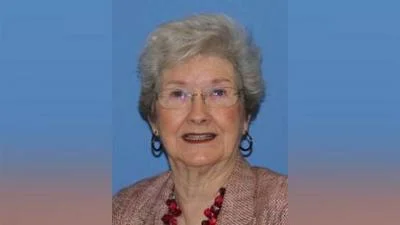The trials and tribulations overtaking embattled Chicago State University (CSU) are yet another example of bureaucratic bloat and mismanagement, Tracy Smodilla, the Republican candidate running for the District 22 state Senate seat, said.
“That CSU has been operating its way into insolvency on the backs of hard-working taxpayers and hoodwinking students is immoral,” Smodilla told the Kane County Reporter.
CSU -- Illinois’ only public institution serving a predominantly minority, low-income student population -- has the highest administrator costs in the state, at $3,600 per student. The amount is a whopping 80 percent higher than the average $2,025-per-student administrator cost at all other Illinois colleges and universities.
The hefty per-student cost is fueled by the large number of administrators CSU employs. According to 2011 public data analyzed by the Illinois auditor general, CSU reported having roughly one administrator for every faculty member.
CSU also counts about 18 students for every CSU administrator. Comparatively, the state average is almost 45 students per administrator. When a university has almost equal numbers of administrators and faculty members, the associated costs are staggering.
At the same time, a recent Chicago Tribune FOIA request revealed that of the 358 full-time academic positions at CSU, the lowest total compensation package was over $74,000 per year, while the highest soared to more than $273,000.
With high numbers of administrators and faculty who get paid a lot of money, the unfortunate repercussions for students are that their tuition has increased and so have their school fees -- to the tune of more than $5,000 per student over the last 10 years.
“This is what happens when left to the academics and their supreme sense of self-entitlement," Smodilla said. "They couldn't care less about the student and taxpayer casualties as long as they, and their interests, are at the front of the line,” Smodilla, a Bartlett resident since 1989, said.
Another issue is why CSU faculty and staff receive such enormous pay and compensation packages when the university’s most-recent graduation rate stood at 11 percent.
“An 11-percent graduation rate? Really? Are we ever expected to believe that CSU staff and administration truly cares about education? Of course not, and now the jig is up,” Smodilla said.
A commission member since 2013 for both the Bartlett Economic Development Commission and the Regional Transportation Authority's Steering Committee, Smodilla has a few ideas about how the state might help CSU solve its problems.
“Rather than shutting all schools down, which would hurt students, consolidate institutions and bring in third-party, independent administrators with no stake in the pension plan,” Smodilla said.
Additionally, she suggested increasing the staff-student ratio to at least 30:1 and hiring more part-time and adjunct faculty rather than full-time professors.
“I’d also bet that if a merit-based pay structure were implemented, you’d see graduation rates soar, and everyone would win: students, taxpayers, and those truly interested in education,” Smodilla said.
Smodilla is running against Democrat Cristina Castro in the Nov. 8 general election. Incumbent state Sen. Michael Noland (D) did not seek re-election.






 Alerts Sign-up
Alerts Sign-up